Starbucks Yunnan Coffee Bean Variety and Production Area Story Yunnan Katim Tin Coffee Flavor Characteristics
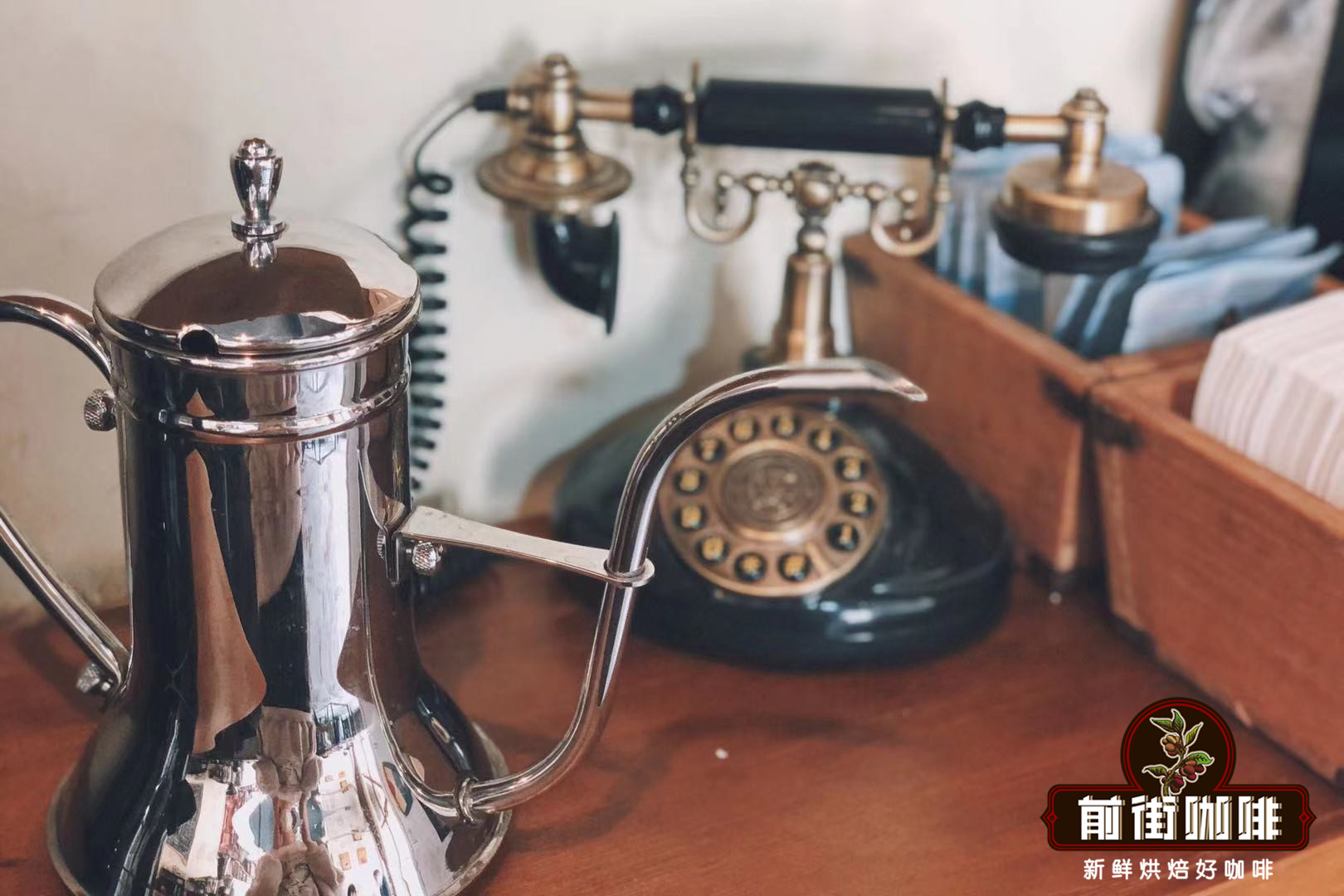
Professional coffee knowledge exchange more coffee bean information please follow the coffee workshop (Wechat official account cafe_style)
With the trembling of the boutique coffee market, Yunnan coffee has also begun to open up the coffee market. For example, Starbucks has been launching Yunnan selection coffee beans in recent years, and has been on the new Yunnan coffee beans since 2017. For example, the latest Pu'er Baoshan comprehensive coffee beans and Qingkai Farm selected coffee beans are all from Yunnan, which is enough to prove the excellence and potential of Yunnan coffee. For example, Qianjie Coffee also has a special Arabica Coffee Plantation in Baoshan, Yunnan. In this next article, Qianjie Coffee will come to popularize the flavor and characteristics of these two Yunnan coffee beans from Starbucks, as well as the current situation of the Yunnan coffee market. Starbucks Phoenix dance Xiangyun coffee beans
According to Qianjie Coffee, it has been ten years since Starbucks launched and adopted Chinese-made Arabica coffee beans as the "Fengwu Xiangyun" series of coffee, from the first launch of single-origin Yunnan coffee beans in 2017, to the launch of two new Yunnan Zhenxuan coffee beans this year, Starbucks fulfilled its promise of "bringing Yunnan coffee to the world" and endorsed Yunnan coffee with its own industry status. It just proves that the quality of Yunnan coffee beans is not to be underestimated.
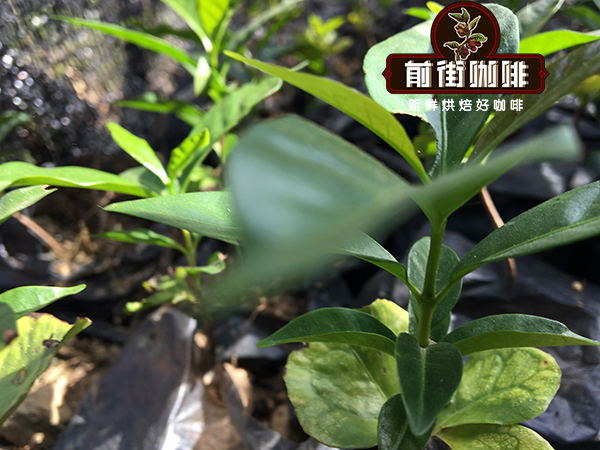
Starbucks selects coffee as the representative of Starbucks in the field of boutique coffee, and has a high demand for flavor. At the same time, the selection of coffee brands has always been the focus of Starbucks. Therefore, the significance behind Starbucks' launch of Yunnan Zhenxuan single-origin coffee beans is that it not only represents Starbucks' confidence in Yunnan coffee beans, but also represents Starbucks' hard work in Yunnan. It also highlights the important role Starbucks plays in the growth of Yunnan coffee bean market.
Qingkai Farm selected Coffee beans
Qingkai Farm Zhenxuan Coffee beans are from Qingkai Farm in Pu'er, Yunnan Province. The dryer method is used to reduce the mildew problem caused by the overlap of coffee bean picking season and rainy season as much as possible. it makes the coffee beans have more stable quality when they are treated by the sun.
Flavor description: smooth chocolate-like palate with soft herbal flavors of sage and thyme.
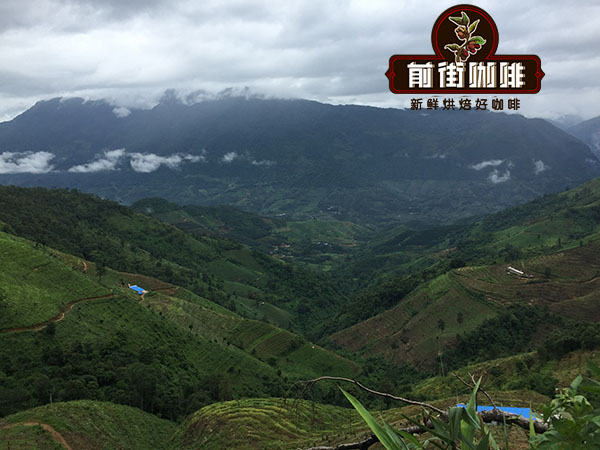
Pu'er Baoshan comprehensive coffee beans
Starbucks China's first Yunnan Zhenxuan coffee bean-Pu'er Baoshan comprehensive coffee bean, is made of coffee beans from Baoshan Zuoyuan Coffee, which is nearly a thousand kilometers apart, and Pu'er Menglian County Jinshan Coffee Cooperative, both of which are processed by water washing. This is also the first time that Starbucks China has adopted the "shallow baking curve" lightly roasted coffee beans in its home market.
Flavor description: after the combination of the two coffee beans, the flavor is more integrated, the warm sweet pepper flavor burst out as sour and sweet as fruit, and the taste like syrup is memorable.
The above are the basic information and characteristics of the two Yunnan coffee beans sorted out by Qianjie Coffee. Above, Zhongqianjie Coffee also mentioned the infinite potential of Yunnan coffee; because the street has also set up a coffee tree plantation specializing in growing iron pickup coffee beans in Baoshan, Yunnan Province, then Qianjie Coffee will talk about the magic and attraction of this land in Yunnan.

Regional characteristics of coffee bean production in Yunnan
Yunnan is located in southwest China, and the Tropic of Cancer runs through southern Yunnan, which belongs to the mountainous plateau topography, in which the middle altitude area of 1000-3500m accounts for nearly 90% of the province's land area. Yunnan's climate belongs to the subtropical plateau monsoon type, with a large daily temperature difference and abundant rainfall, just like Qianjie Coffee mentioned in the previous article. The growing environment of coffee should be in high altitude areas. The temperature and precipitation must be suitable to grow high-quality coffee cherries, and Yunnan meets these conditions, so the quality of coffee fruits produced in Yunnan is not destined to be too poor.
So now the vast majority of coffee in China comes from Yunnan, which accounts for 98% of the national coffee market, which basically represents China's coffee growing industry.
Yunnan coffee bean producing area
The main planting and distribution areas of Yunnan small-grain coffee are in the south and west, among which Pool, Baoshan, Dehong and Lincang are more famous. Yunnan coffee beans planted in Qianjie coffee farm come from Baoshan, Yunnan. Qianjie coffee thinks that the coffee beans produced here are strong but not bitter, fragrant but not strong, and have regional characteristics. Next, Qianjie will briefly introduce the characteristics of Yunnan coffee producing areas.
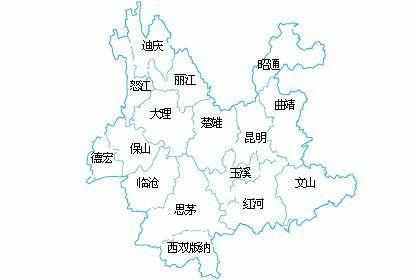
Dehong: it has the laudatory name of "hometown of Chinese coffee". The coffee planting in Dehong Prefecture is above 1000 meters above sea level, of which 30, 000 mu are planted in the mountains above 1600 meters above sea level. in addition, the coffee grown in Dehong Prefecture mainly uses organic fertilizers and organic pesticides, resulting in high quality coffee. it is one of the rare high-quality coffee producing areas in the world. Baoshan: the cultivation of coffee in Baoshan began in the mid-1950s, and the first coffee seedling was introduced by the late patriotic overseas Chinese Mr. Liang Jinshan in Southeast Asia. In recent years, with the expansion of international trade, Lujiangba's small-grain coffee is more famous. Merchants in Europe, the United States, Egypt, Hong Kong and Macao, especially in Britain, the United States, Egypt, Hong Kong and Macao all regard it as top-grade coffee, and their products are in short supply. In December 2010, after being examined and approved by China's General Administration of quality Supervision, Inspection and Quarantine, it was decided to implement national geographical indication product protection for "Baoshan small Coffee".

Lincang: because of its unique geographical location and climatic conditions, Lincang has become the focus of many coffee enterprises, and has successively established 200 mu and 100 mu of high-quality coffee breeding bases in Mengding Town and Lincang Happiness Farm in Gengma Autonomous County of the city. coffee is planted in Gengma, Zhenkang, Yun County, Cangyuan, Yongde and other places. Pu'er: tea village Pu'er has cultivated coffee for 150 years. At the end of 1990s, Pu'er City began to cultivate coffee as a dominant backbone industry to adjust the industrial structure and increase farmers' income.
History of Coffee cultivation in Yunnan
Although Yunnan coffee has not appeared in the boutique coffee market for a long time, it can be said to be a rising star, but according to Qianjie Coffee, it has a long history of growing coffee in Yunnan, which can be divided into four stages:
The first stage: in the 1880s, the Qing government was forced to sign a treaty with France to end the Sino-French war and opened Mengzi (Mengzi County, Honghe Prefecture) as a trade port. In 1889, Mengzi customs switch opened the prelude to the exchange between the southwest border and the outside world, and foreign businessmen gathered and foreign firms came one after another.
The second stage: in 1902, a French missionary named Tian Deneng brought coffee from Vietnam to grow coffee in a mountain village called Zhu Kula in Binchuan County, Dali, Yunnan Province. Today, the offspring of that batch of coffee are still alive.
The third stage: in 1952, experts from Yunnan Academy of Agricultural Sciences distributed 80kg coffee seeds to farmers in Lujiangba, Baoshan, and then guided planting on a large scale a few years later, which led to the coffee trees swaying along the Yunnan-Burma Road. Coffee cultivation in Yunnan has developed rapidly due to the huge demand for supply from the Soviet Union.
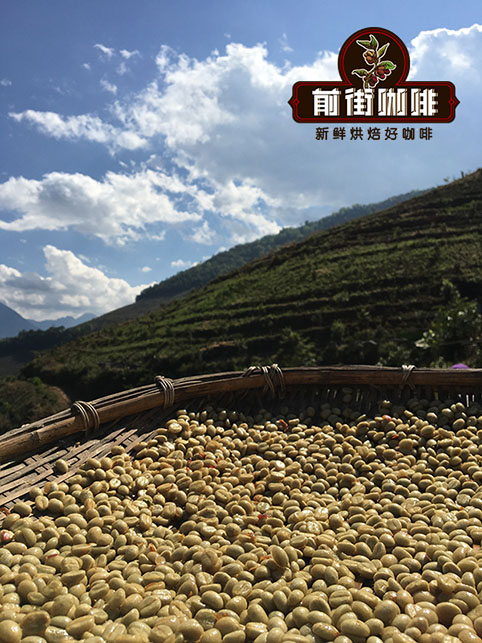
The fourth stage: in 1988, Nestl é set up a joint venture in China and began to support the development of the local coffee industry in Yunnan by starting a coffee planting project. Yunnan coffee rose again. Since 1992, Nestl é has established the Coffee Agriculture Department to guide and study the improvement and cultivation of coffee in Yunnan, and to buy coffee at the price of the spot market in the United States. Up to now, not only coffee giants such as Nestl é, Maxwell, Kraft and Starbucks are engaged in coffee business in Yunnan, local coffee enterprises are also gradually growing.
It is precisely after the above four stages that Yunnan began to study coffee cultivation, and now coffee farmers in Yunnan mainly grow small grain clock coffee, so Yunnan coffee is also known as Yunnan small grain coffee. Next, Qianjie Coffee will come to popularize the coffee varieties currently grown in Yunnan.
Yunnan coffee bean varieties
At present, Katim coffee beans are the most widely grown in Yunnan, but there are also a small amount of iron pickup coffee beans and bourbon coffee beans in Baoshan area. Although they all belong to Arabica species on a large scale, these varieties are very different in nature.
Iron pickup
Iron pickup is the oldest native variety of Arabica in the coffee market, and almost all of the coffee varieties to which Arabica belongs are derived from iron pickup. Iron pickup has an elegant flavor, but its physique is weak, its disease resistance is low, and it is easy to be infected with leaf rust. Therefore, the output of coffee beans is low, and there is no way to achieve economic benefits. In recent years, iron cards in Central and South America have been gradually replaced by Kaddura and Kaduai. So the figure of the iron pickup is becoming more and more rare. Although the flavor of the iron pickup is elegant, it is not as popular as bourbon.
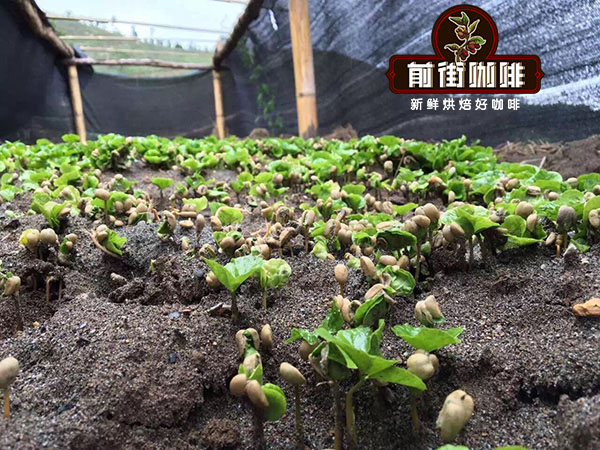
The main coffee trees planted in Qianjie Coffee Manor in Yunnan are the varieties of iron pickup, because the coffee of iron pickup has its unique quiet and clean flavor, balanced characteristics and high cleanliness, so although it is not easy to grow coffee trees of iron pickup, as the oldest native variety of Arabica, its flavor quality should not be underestimated. On the other hand, Qianjie Coffee wants Yunnan coffee tasted by coffee fans to show the best flavor, so it mainly grows tin card varieties of coffee trees.
Bourbon
It is the second species caused by the mutation of the iron pickup, and it belongs to the oldest existing variety of coffee, and the green fruit will appear bright red when it is ripe. Compared with the tin card species, the bourbon species has wider leaves and denser growth. although the seed setting is higher than the tin card, the harvest time is also 2 years, which is also a variety with less yield, but it has a high-quality taste, like the sour taste of red wine, and the aftertaste is sweet.
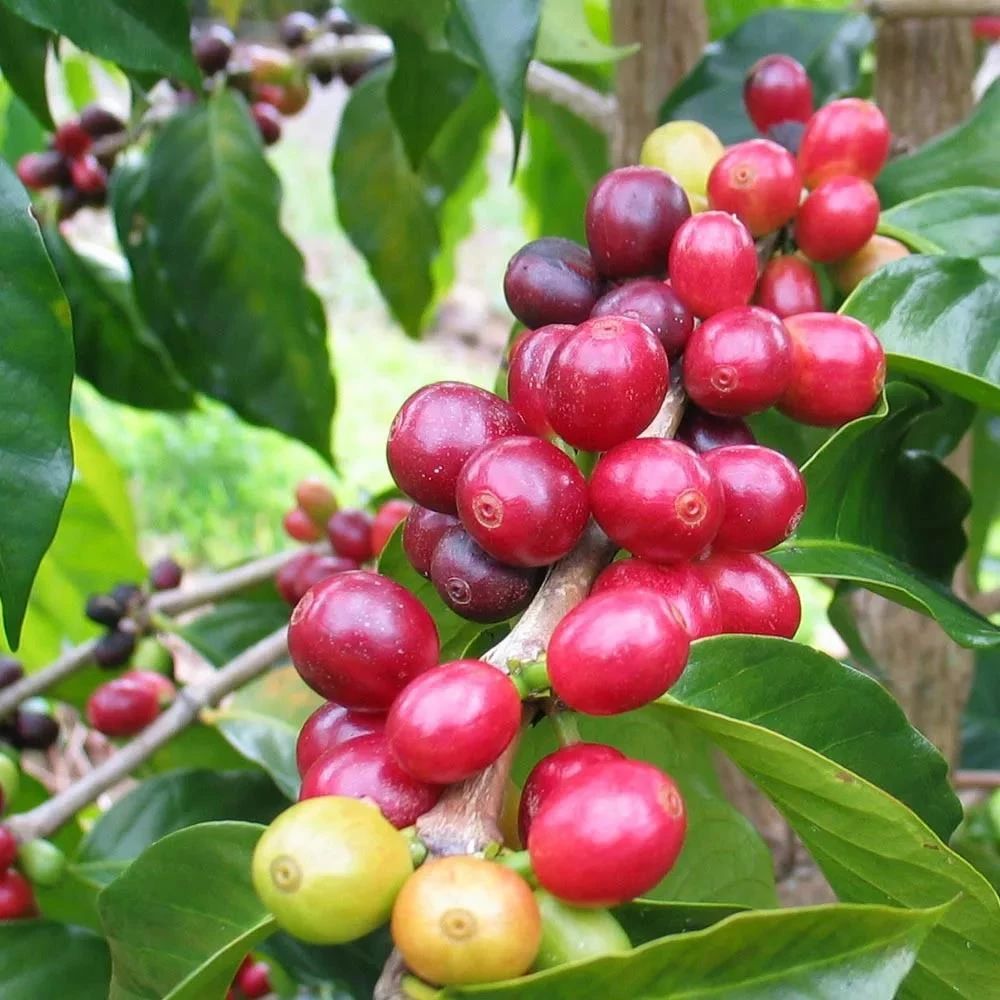
Katim coffee variety
Katim is a combination of Arabica and Robusta, which has good resistance to leaf rust and rich oil, high yield and easy to grow, so after crossing with Arabica, Katim has 25% of the Robusta gene, which improves resistance to leaf rust and retains rich oil. at the same time, it also has the rich taste of some tin card original species.
Katim coffee beans are also the most widely grown coffee varieties in Yunnan, China. Although at present, many coffee fans still can not accept Katim coffee beans and think that their flavor is not good, their potential is indeed infinite. Take Indonesia pwn Gold Manning as an example. In 2020, the latest batch of Golden Manning coffee beans are also Katim coffee beans. This is also enough to prove that the Katim variety of coffee beans has great potential.

Yunnan coffee treatment method
According to Qianjie Coffee, up to now, Yunnan coffee beans have been treated by a lot of methods, but Yunnan coffee beans produced by Qianjie coffee are now treated with water washing, because the water washing method can best reflect the most primitive flavor of a coffee bean, and it can also make the flavor of coffee beans cleaner and brighter, reducing miscellaneous flavor, so Qianjie coffee uses water washing treatment to deal with coffee beans. The aim is to make coffee fans in Laiqian Street Coffee Shop drink the most authentic and primitive flavor of Yunnan coffee beans.
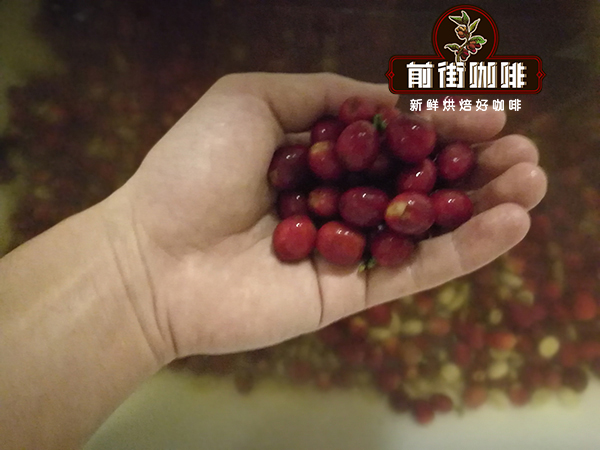
Above, Qianjie Coffee introduced to coffee fans the planting conditions, varieties and treatment of Yunnan coffee. This is because the flavor of a single coffee bean depends on its planting environment, that is, the producing area, as well as the variety and treatment of coffee. These are the decisive factors that will affect the flavor performance of coffee. So Qianjie Coffee will learn about the story of the producing areas of this bean and the three basic factors of flavor formation before each new coffee bean is on the shelves, and briefly describe these contents on the packaging and write an article for coffee fans to understand deeply. This is also one of the joys of tasting individual coffee. Next, Qianjie Coffee will share two individual coffee beans produced by Qianjie Yunnan Coffee Farm to give you.
Qianjie coffee Yunnan Huaguoshan coffee beans
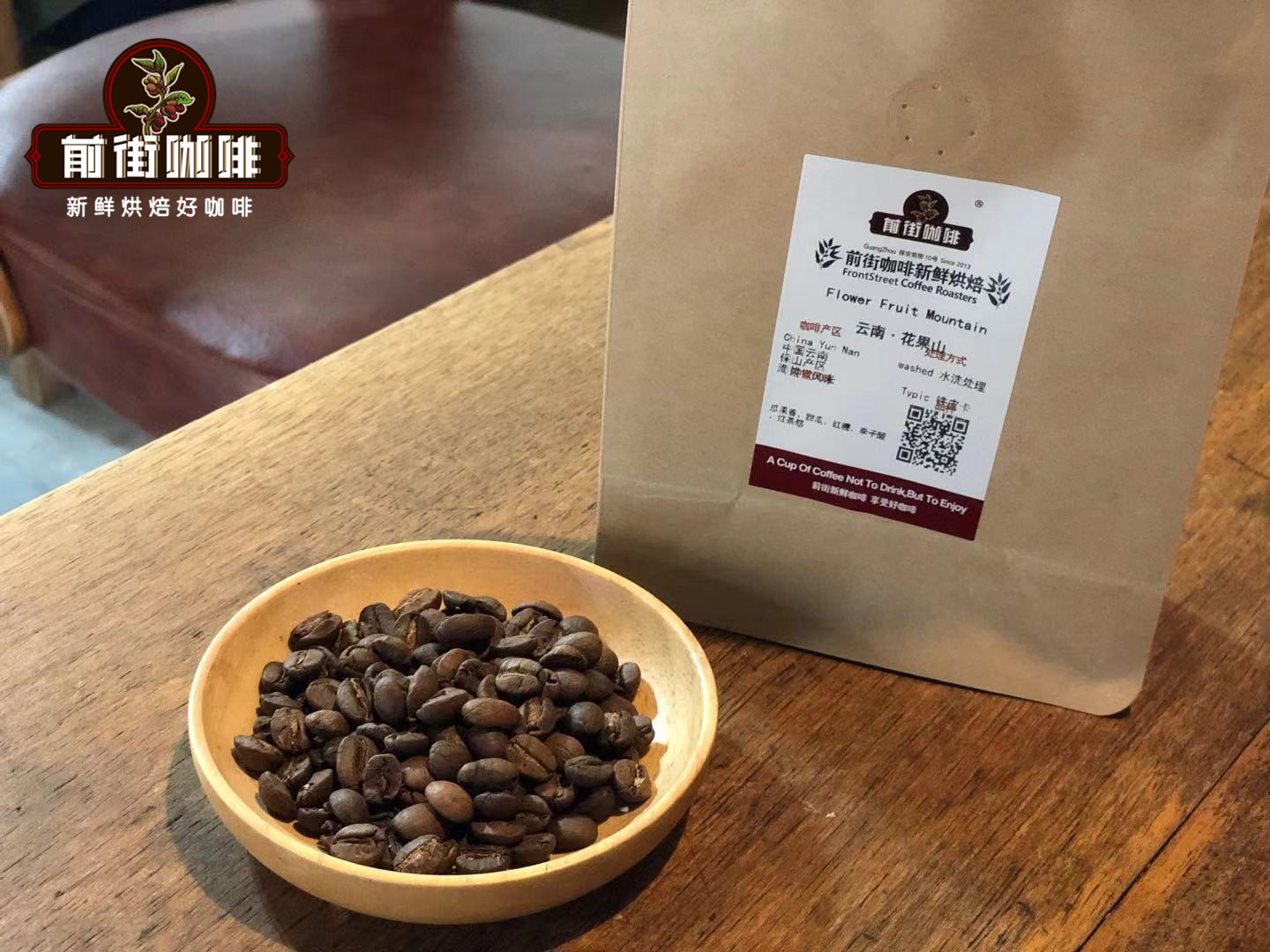
Country: China
Producing area: Baoshan, Yunnan
Altitude: 1450-1550m
Variety: iron pickup
Treatment: washing treatment
Flavor: citrus, nuts, plums, melon and fruit, brown sugar, black tea
Qianjie Coffee Yunnan small Coffee beans
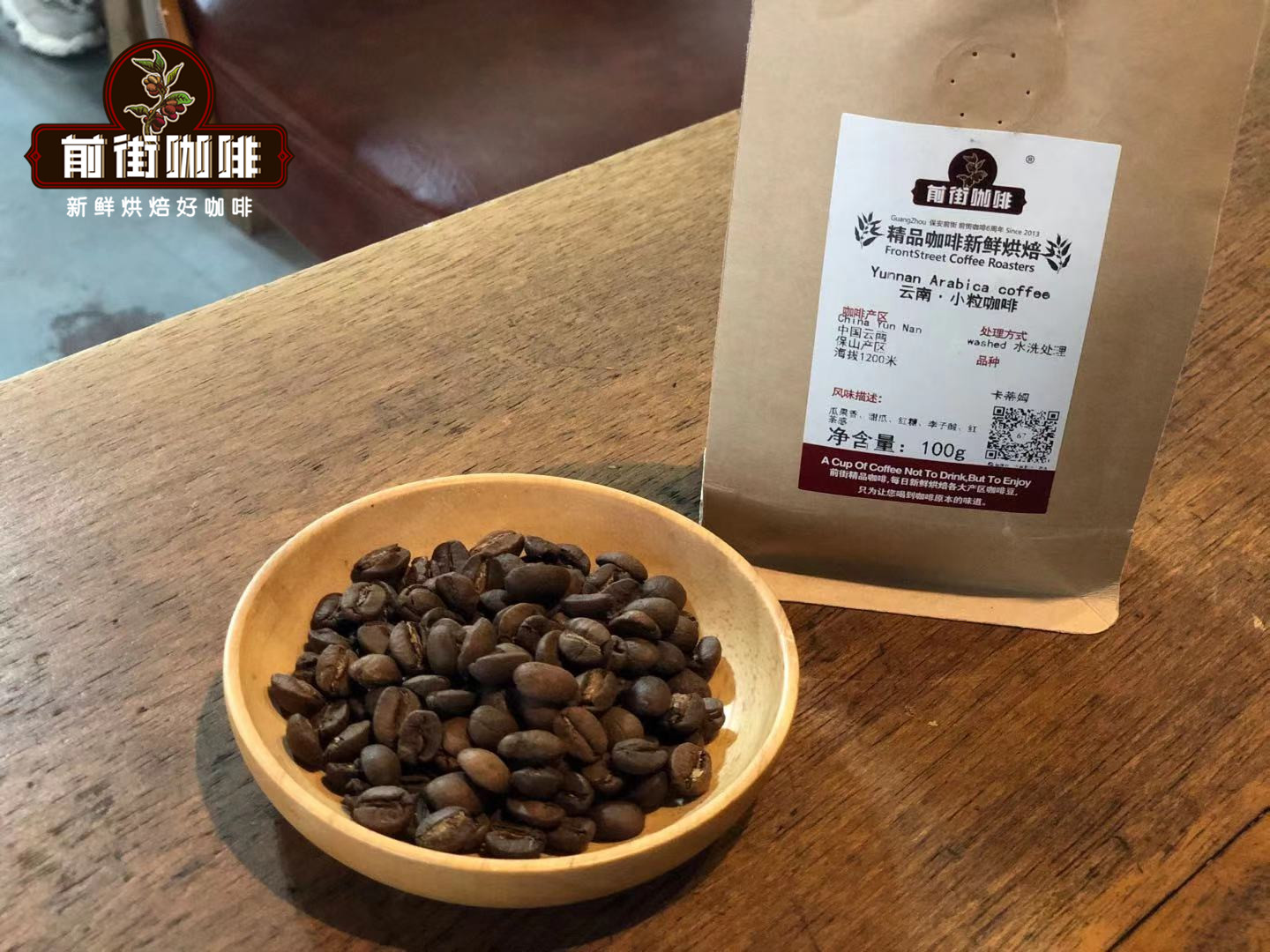
Country: China
Producing area: Baoshan, Yunnan
Altitude: 1200m
Variety: Katim
Treatment: washing treatment
Flavor: herbs, nutty, chocolate, caramel
The above is the information about the flavor characteristics of Yunnan coffee beans sorted out by Qianjie Coffee, hoping to help coffee fans know more about Yunnan coffee so that they can choose coffee beans that suit their own taste in the future.
For more boutique coffee beans, please add private Qianjie coffee on Wechat. WeChat account: kaixinguoguo0925
Important Notice :
前街咖啡 FrontStreet Coffee has moved to new addredd:
FrontStreet Coffee Address: 315,Donghua East Road,GuangZhou
Tel:020 38364473
- Prev
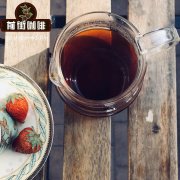
Maid coffee shop? What's so special about it?
Professional barista communication please follow the coffee workshop (Wechat official account cafe_style) maid coffee / maid coffee Maid Cafe/ role-playing coffee maid cafe Maid Caf;/COSPLAY coffee shop maid cafe is very popular, ordinary people are also involved, its origin and history? Nowadays, maid cafes are so popular all over the country that even ordinary people are not immune from vulgarity.
- Next
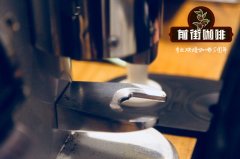
Authentic Vietnamese coffee! I'll teach you.
Professional coffee knowledge exchange more coffee bean information please follow the coffee workshop (Wechat official account cafe_style) pure Vietnamese drip coffee practice Vietnamese coffee pot use first talk about the origin of Vietnamese coffee Vietnamese coffee originated in France in the early 20th century very popular drip coffee, along with the colonial relations between France and Vietnam and introduced to Vietnam. Depth of coffee used in Vietnam
Related
- Unexpected! Ruixing Telunsu lattes use a smoothie machine to foam milk?!
- % Arabia's first store in Henan opens into the village?! Netizen: Thought it was P's
- Does an authentic standard mocha coffee recipe use chocolate sauce or powder? Mocha Latte/Dirty Coffee/Salty Mocha Coffee Recipe Share!
- What is the difference between Vietnam egg coffee and Norway egg coffee? Hand-brewed single product coffee filter paper filter cloth filter flat solution!
- What is the difference between sun-cured and honey-treated coffee? What are the differences in the flavor characteristics of sun-honey coffee?
- How to make Italian latte! How much milk does a standard latte use/what should the ratio of coffee to milk be?
- How to make butter American/butter latte/butter Dirty coffee? Is hand-brewed coffee good with butter?
- Is Dirty the cold version of Australian White? What is the difference between dirty coffee/decent coffee and Australian white espresso?
- Relationship between brewing time and coffee extraction parameters How to make the brewing time fall to 2 minutes?
- Got entangled?! Lucky opens a new store, Mixue Ice City, and pursues it as a neighbor!

